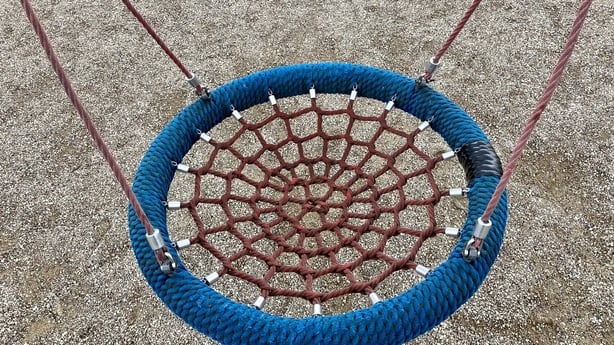The Ombudsman for Children's Office (OCO) has called for urgent support for families providing full-time kinship care to the children of their relatives.
It is estimated that between 10,000-12,000 Irish children are in the full time care of relatives.
But these informal arrangements are unrecorded, and the majority of families receive no financial or emotional support.
"They are an invisible army of carers," said Nuala Ward, Director of Investigations at the OCO. "They are invisible in Government policy".
Examples of kinship carers include grandparents that are caring for their grandchildren full-time, or aunts and uncles caring for their nieces and nephews.
They can also be young adults caring for teenage siblings following the bereavement of a parent.
Nobody knows how many children are being cared for in this way, but Kinship Care Ireland estimates there are many thousands of these carers.
Laura Dunleavy of Kinship Care Ireland told RTÉ's News at One that the estimated number of young people involved in these informal arrangements equals twice the number of children that are in formal foster or State care.
She said kinship carers are a hidden group about which little is known.
We need your consent to load this rte-player contentWe use rte-player to manage extra content that can set cookies on your device and collect data about your activity. Please review their details and accept them to load the content.Manage Preferences
"We have grandparents who have been caring for children for eight or nine years and they've never heard the term before.".
Naming it, she said can be "lightbulb moment" when they realise they are not alone.
Ms Dunleavy said children generally come into kinship care as a result of a parental crisis.
"It can be the death of a parent, parental addiction, mental health illness, imprisonment, violence or other challenges that impact families," she said.
Carers can be unprepared to take on a child, both financially or emotionally.

"Our role is to push for policy development. There is no clear support pathway for kinship carer families in Ireland".
The OCU says the UN Convention on the Rights of the Child highlighted Ireland's lack of attention to these children in 2023.
The Government committed to drawing up a policy for informal kinship care, but Ms Ward said it is time for a progress report.
"If these grannies and granddads and aunties and uncles hadn't stepped in, they (children) would be going into State care. That costs a lot of money."
She said that there is less stigma for children being cared for by family members, rather than in State care.
"They are staying within their family network. Everyone knows that is absolutely the best thing to do for these children".
The Department of Children, Equality, Disability, Integration & Youth said governance structures were in place for the development of a National Policy on Children living in informal kinship care.
"A scoping review is under way which includes a review of current practice in this area nationally and internationally."
The statement said research would shortly begin on "establishing the prevalence of children and young people living in informal kinship care in Ireland".
This will be followed by a scoping paper that includes feedback from all stakeholders.
It will then go to public consultation, with policy recommendations for the Government to follow.

Eithne's Story
Eithne (not her real name) and her husband have been looking after their eight-year-old grandson full time for 15 months.
"We've been able to do it, but it's been tough," she said.
"I suppose when it happens you are thrown into a situation where you don't know what the future holds, how long it's going to be for".
She said that her grandson was very unsettled when he came to them.
"He was very anxious, he was a little bit underweight. He was having sleep issues and was on fight or flight mode all of the time, and just a bit scared I suppose."
After 15 months of having a routine she has seen huge changes in her grandson.
"The anxiety is gone, he is sleeping great. He's really in a good place".
Eithne continues to work but says bills mounted up quickly after her husband retired early to look after their grandson.
She looked for assistance but had little success until Kinship Care Ireland told her about the guardianship payment.
She says the payment is difficult to get, but two weeks ago it was approved.
"We can put a bit of money away for him for the future, for college, if he ever needs a little car, things that you'd do for your own children".
Eithne says information about payments and supports should be freely available to carers like her.
"This information is not being given freely. It's absolutely crazy".
Though Eithne and her husband did not expect to be full time carers of a young boy, she said the rewards are huge.
"We see every day how much he's improving, how happy he is. He's a well balanced lad, great at sport, he just loves life".







